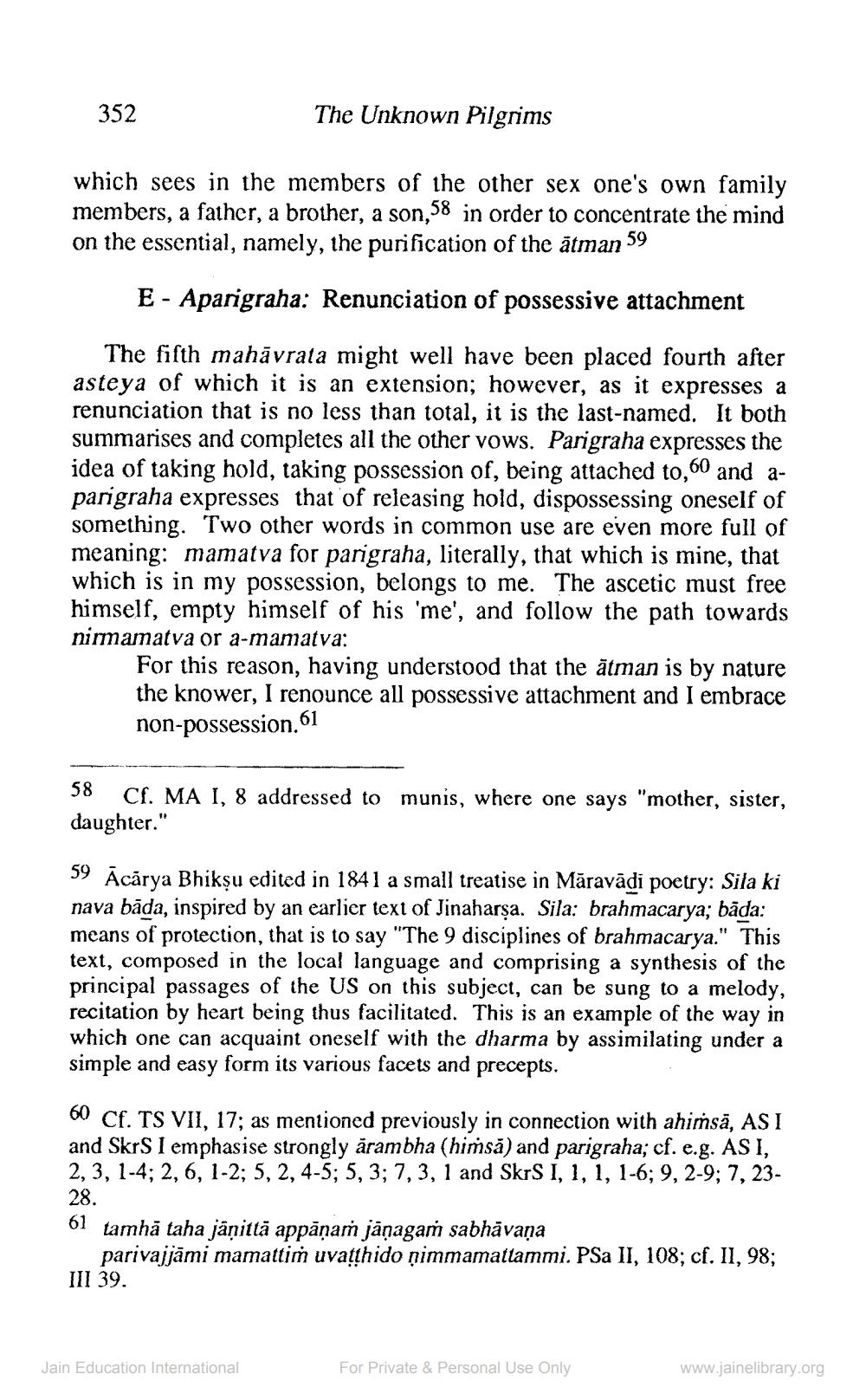________________
352
The Unknown Pilgrims
which sees in the members of the other sex one's own family members, a father, a brother, a son,58 in order to concentrate the mind on the essential, namely, the purification of the ātman 59
E - Aparigraha: Renunciation of possessive attachment
The fisth mahāvrata might well have been placed fourth after asteya of which it is an extension; however, as it expresses a renunciation that is no less than total, it is the last-named. It both summarises and completes all the other vows. Parigraha expresses the idea of taking hold, taking possession of, being attached to, 60 and aparigraha expresses that of releasing hold, dispossessing oneself of something. Two other words in common use are even more full of meaning: mamatva for parigraha, literally, that which is mine, that which is in my possession, belongs to me. The ascetic must free himself, empty himself of his 'me', and follow the path towards nirmamatva or a-mamatva:
For this reason, having understood that the ātman is by nature the knower, I renounce all possessive attachment and I embrace non-possession.61
58 Cf. MA 1, 8 addressed to munis, where one says "mother, sister, daughter."
39 Ācārya Bhikṣu edited in 1841 a small treatise in Māravādi poetry: Sila ki nava bāda, inspired by an earlier text of Jinaharsa. Sila: brahmacarya; bāda: means of protection, that is to say "The 9 disciplines of brahmacarya." This text, composed in the local language and comprising a synthesis of the principal passages of the US on this subject, can be sung to a melody, recitation by heart being thus facilitated. This is an example of the way in which one can acquaint oneself with the dharma by assimilating under a simple and easy form its various facets and precepts.
60 Cf. TS VII, 17; as mentioned previously in connection with ahiṁsā, ASI and SkrS I emphasise strongly ärambha (hissă) and parigraha; cf. e.g. ASI, 2, 3, 1-4; 2, 6, 1-2; 5, 2, 4-5; 5, 3; 7,3, 1 and SkrS I, 1, 1, 1-6; 9, 2-9; 7, 2328. 61 tamhā taha jāņitta appāņam jāņagaṁ sabhāvaņa
parivajjāmi mamattim uvathido ņimmamattammi. PSa II, 108; cf. II, 98; III 39.
Jain Education International
For Private & Personal Use Only
www.jainelibrary.org




